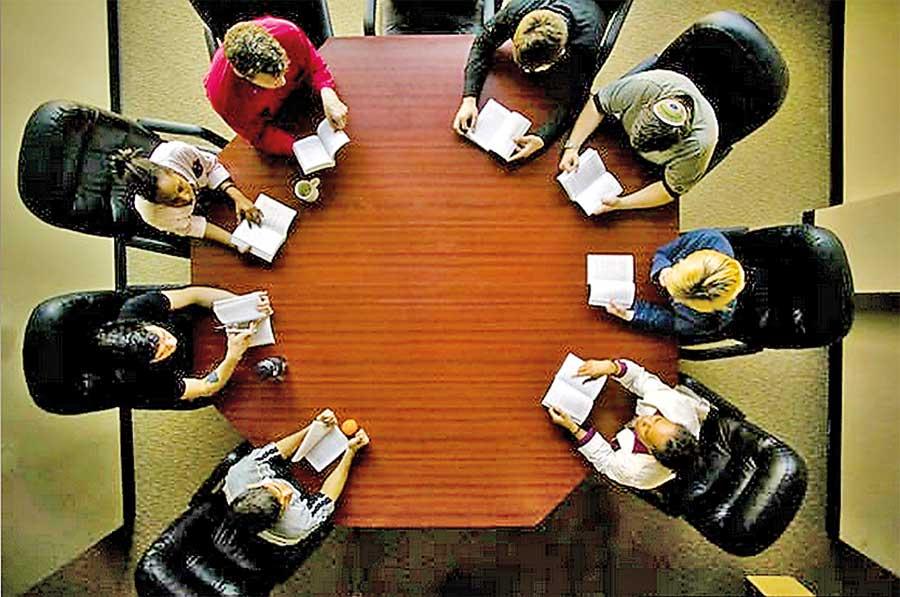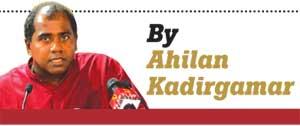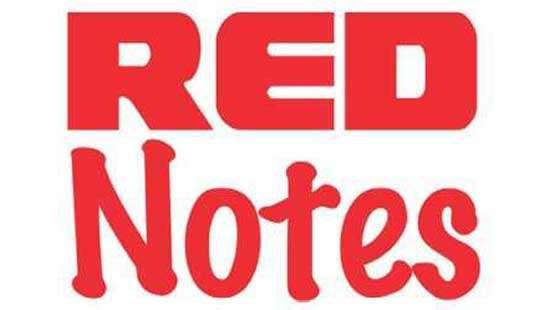05 Jul 2021 - {{hitsCtrl.values.hits}}

This is an age when education is said to be about teaching students through the best online medium and preparing students with the “competencies” for the job market. In contrast to this technocratic view of education shaped by experts and technology, what should education in a democracy look like?
students with the “competencies” for the job market. In contrast to this technocratic view of education shaped by experts and technology, what should education in a democracy look like?
A group of progressive academics are spreading refreshing perspectives into contemporary debates on education, and writing a column every other week titled “Kuppi Talk”. In addition, to publishing their column in all three language newspapers, on a range of issues including the despicable practice of ragging, education and employment, university autonomy, sexual harassment etc., they are coordinating many webinars on topics relating to state initiatives on education to freedom of expression.
This group led by feminists are also organising a reading group with the participation of students, probationary lecturers, PhD candidates, senior lecturers, professors and others interested in education. Beginning with a series of readings on Paulo Freire’s classic work, ‘Pedagogy of the Oppressed’, this group is now reading the ‘Report of the Special Committee on Education’ chaired by C.W.W. Kannangara and published in November 1943.
This Report was significant for rationalising the case for and ensuring the policy of free education by linking it to the broader question of democracy. I draw from it here to address the contemporary situation dominated by authoritarian and corporate tendencies in education, and government more broadly.
Special Committee Report
All historical documents belong to their age and place, but we read them through questions and debates from our times. The Special Committee Report has many shortcomings from our vantage point. All 24 of its members were men, without even tokenistic participation of women characteristic of committees today, and provide problematic gendered ideas on women’s education. Sections of the Report are limited by a liberal framing where educational development is focused on individual students and the minorities question addressed through the idea of tolerance. Despite these limitations, I nevertheless cannot imagine a committee either from a state body or academia in contemporary Sri Lanka that would be capable of conceptualising a problem and working towards a solution with such intellectual rigour and depth.
 The Preface of the Report discusses some of the debates that led to the formation of the Committee at the moment of decolonisation. It argued against privileging “outside experts… having no knowledge of local conditions… [and that the] educational problem being only part of the larger problem of national and social reconstruction doubt was also entertained as to whether an outside body could bring to bear to their task the necessary understanding of and sympathy for the legitimate aspirations of a people striving for their rightful place in the Committee of Nations.” This national perspective at the moment of decolonisation pervades the Reports, but I am struck by the way in which they link it to the idea of “social reconstruction” and “understanding and sympathy” for the people. Sri Lanka’s contemporary educational administrators and policymakers have lost their bearings as they subserviently accept the corporate vision of education incentivised and propagated by neo-colonial agencies like the World Bank and Asian Development Bank. It is this “money talk” of the neoliberals that “Kuppi Talk” is also confronting!
The Preface of the Report discusses some of the debates that led to the formation of the Committee at the moment of decolonisation. It argued against privileging “outside experts… having no knowledge of local conditions… [and that the] educational problem being only part of the larger problem of national and social reconstruction doubt was also entertained as to whether an outside body could bring to bear to their task the necessary understanding of and sympathy for the legitimate aspirations of a people striving for their rightful place in the Committee of Nations.” This national perspective at the moment of decolonisation pervades the Reports, but I am struck by the way in which they link it to the idea of “social reconstruction” and “understanding and sympathy” for the people. Sri Lanka’s contemporary educational administrators and policymakers have lost their bearings as they subserviently accept the corporate vision of education incentivised and propagated by neo-colonial agencies like the World Bank and Asian Development Bank. It is this “money talk” of the neoliberals that “Kuppi Talk” is also confronting!
"Sections of the Report are limited by a liberal framing where educational development is focused on individual students and the minorities question addressed through the idea of tolerance"
The opening paragraphs of the Report itself relate education to democracy: “The character of an educational system depends upon the character of the society for which it is designed. In a totalitarian system the educational system is designed to establish among all sections of the population the opinion of those who for the time being control the destinies of the nation. We have assumed that our task was to recommend an educational system suitable for a democracy, and that our main effort must be directed towards devising a system that will enable every citizen to play his full part in the life of the nation.”
The totalitarian –or I would characterise as authoritarian corporate – outlook of those who control our destinies today are evident from their attacks on democracy and how they are changing the educational system.
The Report puts forward an anti-colonial nationalism emphasising national consciousness and the communal problem characteristic of those times: “When we emphasise the special needs of the Kandyans and Muslims our purpose is not to forward their interests as communities but to enable the members of those communities to share equally with others the facilities that the nation affords. We refer to the communal problem not because we favour communalism, but because owing to the accidents of history the members of certain communities as individuals have not been able to claim equality. Our essential aim is to secure a sentiment of national unity, and so long as members of particular communities’ labour under a sense of frustration and a sense of grievance neither they nor the rest of the population will be able to think in other than communal terms. … The diversity of our cultures renders even more important, if that is possible, the fundamental democratic principle of toleration. Though we emphasize the importance of establishing national unity through education, we urge precisely the reverse of the strident and intolerant nationalism with its national bigotry, its racial discrimination, and its contempt for religion of all kinds that is the fundamental cause of the present conflict.”
How relevant these words are for our contemporary moment, when national bigotry and anti-Muslim attacks are so characteristic of the majoritarian regime in power and many chauvinist propagandists.
Political Education
The above snippets from the Report are thought provoking. There are also in my view contradictions in the Report. Should we think of democracy and minorities in relation to the concept of “equality” or that of “tolerance”? The Report uses both concepts. Contemporary feminist political theorist Wendy Brown’s important book titled, ‘Regulating Aversion: Tolerance in the Age of Identity and Empire’, addresses the darker side of the use of tolerance in hegemonic civilizational discourses that can mask oppression and violence.
The point I want to make here is the relationship between education, politics and democracy, where debates within and in relation to education should spur new concepts and ideas for, to borrow from the Report, “social reconstruction”. Indeed, the Report saw how education is related to politics. Today, technocratic experts claim to be “apolitical” in engaging education, even as they are complicit in the dangerous politics of authoritarianism and corporatisation.
I would like to end with one last quote from the powerful prose of the Report: “Although schools must eschew partisan politics, they must take their share of responsibility for the political education of the nation’s youth.” Are our schools, universities, teachers, students and communities ready for the task of political education for a democracy?
29 Nov 2024 18 minute ago
29 Nov 2024 39 minute ago
29 Nov 2024 2 hours ago
29 Nov 2024 2 hours ago
29 Nov 2024 3 hours ago